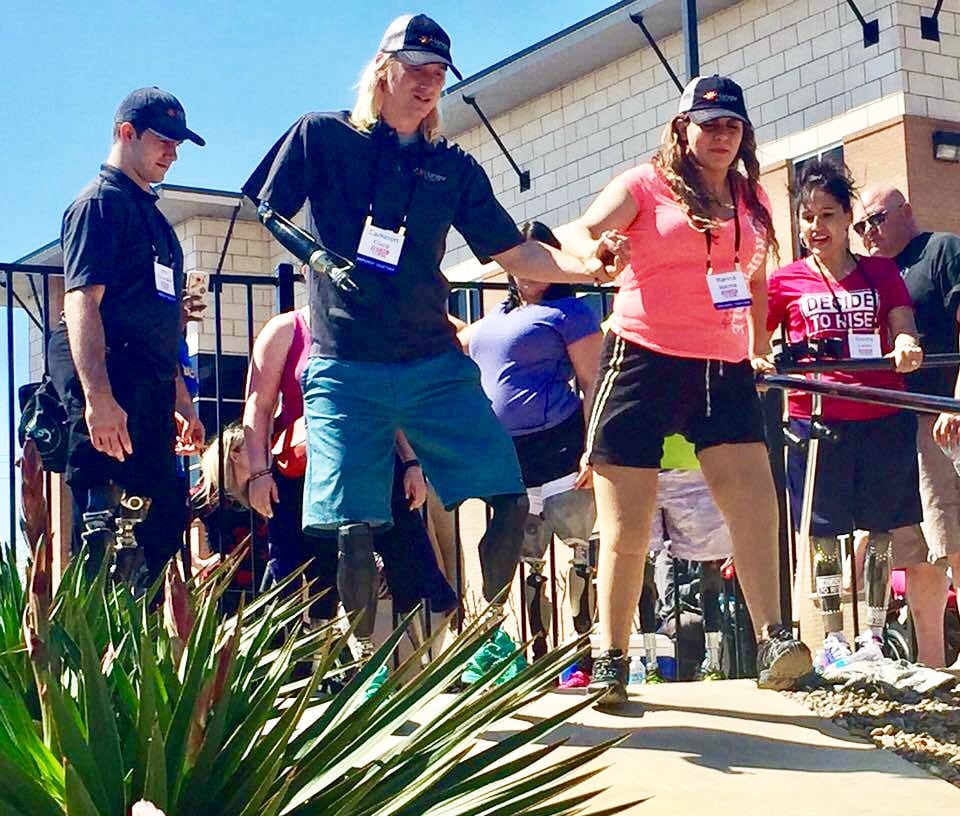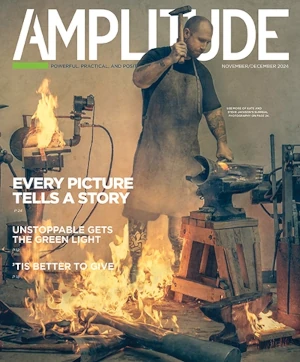Although I had bilateral above-knee amputations before I was 2 years old, I didn’t know any other amputees until I was an adult and met some fellow participants while attending an amputee boot camp in 2017.
Sharing our stories was an indescribably powerful part of the experience. It’s liberating to know that you aren’t alone and that others have had similar struggles.
Many participants lost their limbs because of car accidents, some involving drivers under the influence. Some involved trains. Other individuals lost their limbs due to bacterial meningitis, sepsis, and other medical conditions.
For people who lose their limbs later in life, it can be difficult to experience a life-threatening, traumatic experience and then learn to live without something they once had. Not only do they have to learn to mentally cope, but they also have to learn a new way of living. Like me, there were others who needed an amputation due to congenital anomalies. Although these amputees learn to adapt from a young age, they may be ostracized, bullied, and face obstacles that other children may not, which can make it challenging to relate to their nonamputee peers.
Another valuable part of the conference included learning exercises and stretches to help strengthen our hip, arm, shoulder, and core muscles, as well as to address back pain. These exercises were adaptable to the participants’ walking levels, including those who recently had amputations and those who had never walked on prosthetic legs. We were also shown what to do when we fall and how to get up. Amputees who were advanced in their use of prostheses provided demonstrations, and we were encouraged to try things ourselves. Prosthetists were also there to help us, answer questions, and participate in activities with us.

For participants in wheelchairs who had the potential to get out of them, the goal was to help them stand up and take first steps. For the first couple of days, beginners were encouraged to practice walking up and down the bus stairs and walking next door to lunch. For participants who were already walking but struggled with navigating downhill slopes, stairs, and uneven surfaces, the goal was to practice doing it. On the last day of boot camp, we were pushed to our limits outside on the ramp course.
We all cheered for each other. For those who just started to walk, we cheered. For those who walked without rails, we cheered. For those who were only able to go down halfway, we cheered. It was encouraging and motivating.
We were pushed to our limits—yet we decided to rise.
I encourage you to join us at Hanger Clinic’s Bilateral Above-Knee Amputee Bootcamp, April 19-21 in Oklahoma City. Hanger makes an agreement with the hotel so that attendees only pay a portion of the price. Additionally, transportation is provided to and from the airport, hotel, clinic, and dinner. I hope to see you there!
For more information, visit http://bit.do/hangerbootcamp.



